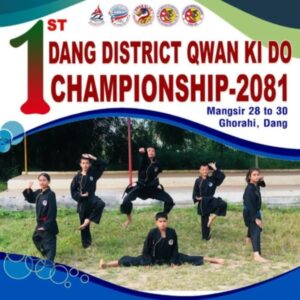
Silk Road or Maritime Silk Road is referred to as the Belt and Road Initiative (BRI). It is an expanded form of Silk Road which is resumed to construct, reconstruct and revitalize the historical, commercial and humanistic spirit of the Silk Road. Whereas the term ‘Confluence’ is formed with ‘con and fluence’ where con means “with or together” and fluence sounds like “flow.” Literally it’s about rivers, a flowing together. But it’s more often used to talk about the coming together of factors or ideas or of cultures in a diverse city. So it is a team workspace where knowledge, creation and collaboration meet. Thus, BRI is such a unique platform under which the epoch of past, present and future has been joined in order to represent the aspirations of three group people.
The pioneer Zhang Qian and Gan Ying who went to the western regions as a special envoys had a significant role for opening up this ancient trade road. It was developed as a network of trade routes from West to East, China and Far East with the Middle East and Europe. At the beginning Silk Road was neither an actual road nor a single route instead it was a network of routes used by traders for more than 1500 years from when the Han dynasty of China opened trade in 130 B.C.E until 1453 C.E when the Ottoman Empire closed off trade with the west. At that time, it was established with the concept of peace, prosperity and intimacy achieving through the connectivity. But later, it became useless and deserted due to the lack of renovation, construction, high risk of insecurity and alternative way of trade routes development.
The Belt and Road Initiative is China’s proposal to build a Silk Road Economic Belt and a 21st century Maritime Silk Road in cooperation with related countries. It was unveiled by Chinese president Xi Jinping during his visit to central and Southeast Asia in September and October 2013. It focuses on promoting policy coordination, connectivity of infrastructures and facilities, unimpeded trade, financial integration, and closer people to people ties through a consultative process and joint efforts, with the goal of bringing benefits to all. Similarly, this initiative is for peaceful development and economic cooperation rather than a geopolitical or military alliance which centers on railways, roads, shipping, aviation, pipelines and integrated space information networks. As well it follows a Silk Road spirit featuring peace and cooperation, openness and inclusiveness, mutual learning and exchanging culture, history and technology.
Belt and Road Initiative is rooted in history but it is oriented to the future. Progress can achieve by the development, innovation and invention of new tools and technologies that can possible not by closing but by opening. So, this initiative opens the door for exchanging new ideas, culture, history, technology as well it creates mutual understanding, cooperation, mutual support and assistance for maintaining peaceful co-existence and progress in the global world. By concentrating to the future, the Belt and Road Initiative is explained as a road of connected civilizations, green development, innovation, peace and prosperity. Therefore, it’s history has been used as a source of progressive ladder for fulfilling the needs and demands of the current situation by enlarging and extending its value for the betterment, convenient and comfortable life of the coming generations. BRI has been a common roof where three generations can inhabit together: as a source/role model (old generation), reformer, creator and administer (present generation), operator and learner (new generation). It is certain that people will be benefitted from every perspective but if it is valued and observed only from the way of economy it will be blunder mistake and irreverence towards the history. It is sure that Belt and Road Initiative will make all people responsible and familiar with the value and pride of the history which can be the great reverence and honor for originator, thinker and contributor for changing vision into action and mission into passion.
Dhakal is a research fellow at Institute of Hermeneutics of Guangdong University of Foreign Studies, China.


